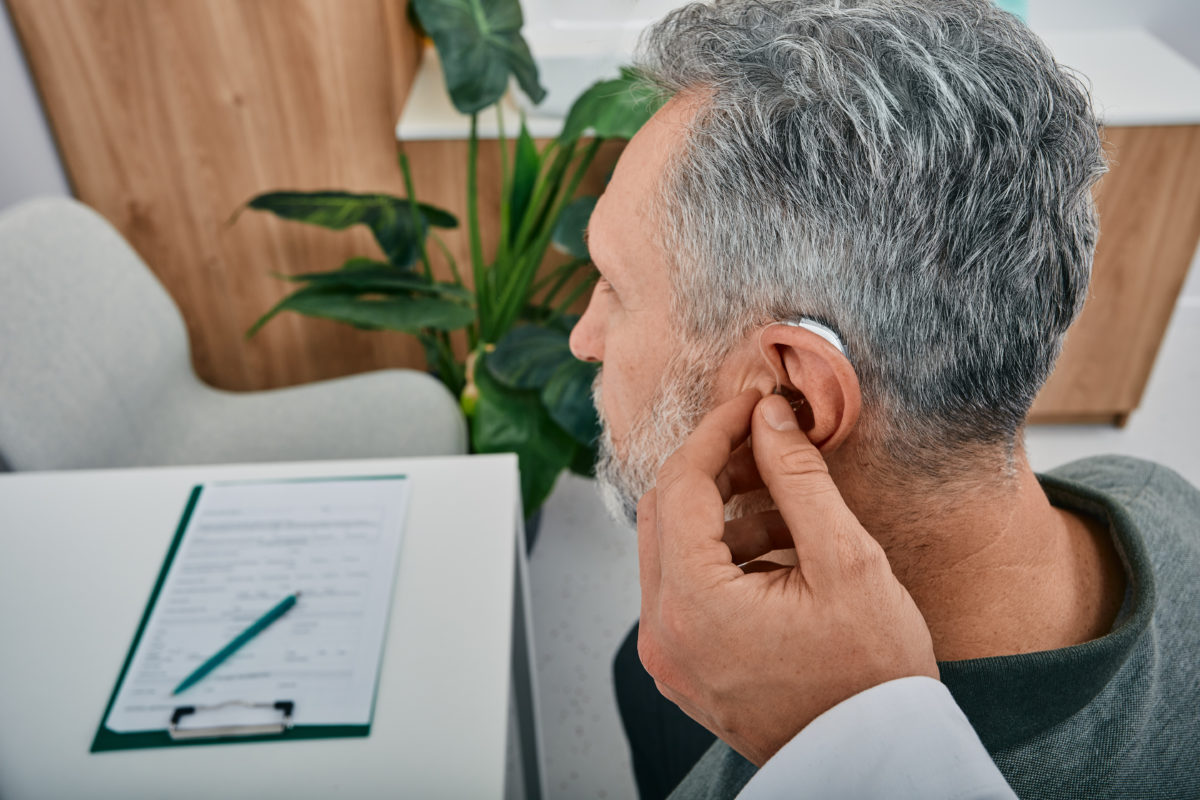So you’ve chosen to get your hearing tested!
Maybe you were already diagnosed with hearing loss years ago but you’re not hearing like you used to with your current hearing aids. Maybe you’ve noticed that you struggle to carry on conversations in restaurants or other public places. Maybe you’ve been getting noise complaints from your neighbors about the television being too loud.
Perhaps a concerned friend or family member has encouraged you to get your hearing tested. Whatever the reason is you’ve decided to get tested, what follows next could be life-changing.
Testing your hearing is a non-invasive and pain-free process. It should all happen in one visit and should not take longer than an hour.
During the initial consultation, you will discuss your medical history.
Your hearing healthcare provider will ask questions like:
- What medications you are currently taking?
- Is there a history of hearing loss in your family?
- Is there any genetic predisposition that might expose you to hearing loss?
- Do you have any chronic conditions such as allergies, ear infections, or head colds?
- Have you experienced any occupational or recreation exposure to loud noises?
- What symptoms are you experiencing?
- Have you experienced any significant head and or neck traumas?
- Where and when is it most difficult for you to hear?
- What activities and hobbies do you participate in?
- Do you lead an active lifestyle?
- What parts of your life are you hoping to improve with better hearing?
They will ask these questions and then some. The more detailed and accurate information that you can provide the easier it will be to determine not only the possible cause or causes of your hearing loss, but this information will also be useful when it comes time to design a custom treatment plan for you.
Following the consultation, a physical exam will be performed with an otoscope.
Each ear canal will be inspected for any visible damage to the eardrum or an inordinate amount of wax build-up in the ear canal.
Afterward, your hearing threshold will be measured to determine the extent of your hearing loss.
Pure-tone audiometry test
You will be played a series of tones through headphones. The tones will be played at different pitches and varying volumes. You will be given instructions to listen carefully and respond to even the faintest hint of a tone. This test will measure the lowest sounds you can hear at different frequency levels.
Speech audiometry test
During this part of the test, you will be asked to listen to recorded or live speech. You will be asked to listen and repeat back certain words to test how well you can hear and understand them. Like the tone test, this will determine the lowest sounds you can hear at different frequency levels.
Speech/Word in noise testEach of the following tests is used to measure your ability to hear speech in loud surroundings:
- Connected Speech test (CST)
- Speech Perception in Noise test (SPIN)
- Speech in Noise test (SIN or Quick Sin)
- Hearing in Noise Test (HINT)
Tympanometry
This test is meant to measure the middle ear’s acoustic reflex response and the eardrum’s movement by placing a soft plug in the ear.
Hidden hearing loss
If you pass all of your hearing tests but still struggle to hear you will be tested for hidden hearing loss.
Following the test, your results will be displayed on an audiogram.
An audiogram is a graphic display of sounds that can be heard in different pitches. Each ear will be represented by a separate line on the chart that shows the lowest sounds each ear hears at differing frequencies.
Hearing loss is measured in decibels (dB):
- Normal hearing loss (0 to 25 dB HL)
- Mild hearing loss (26 to 40 dB HL)
- Moderate hearing loss (41 to 70 dB HL)
- Severe hearing loss (71 to 90 dB HL)
- Profound hearing loss (91 dB HL and over)
Once the unique elements of your hearing loss are known, your hearing specialist can help you determine what your individualized hearing needs are and set up treatment.
You no longer have to live with untreated hearing loss. Take control of your hearing health and schedule a hearing test and consultation today!

